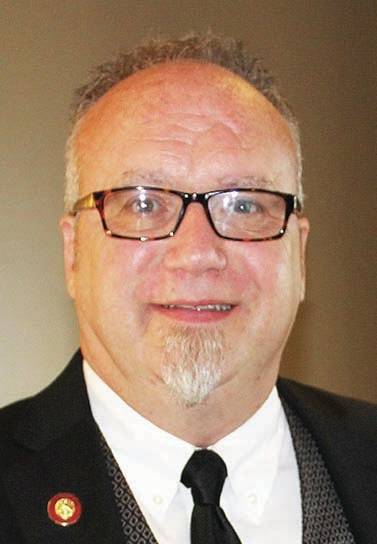Hensley to Heart: The Voice in Our Head
Published 10:20 am Sunday, March 13, 2022

- Judith Victoria Hensley is a retired teacher, writer, photographer and columnist for over 25 years for Harlan Enterprise.
|
Getting your Trinity Audio player ready...
|
The hardest conversations we have as humans can be the negative ones inside our own head.
“You’re ugly.” “You’re fat.” “You’re so stupid.” “You’re worthless.” “You can’t do this.” “You’re a loser.” “Nobody loves you.” “You big dummy!” “I hate you.”
We need to be aware of the voice in our head and what it’s saying and why. Often that voice is repeating words that someone else has said to us or about us. It can be a reflection of expressing our insecurities that stem from comparing ourselves to someone else.
At some point in time, probably everyone has heard this inner voice. None of us are perfect and that inner critic is often the first to point it out. I struggled with these baseless feelings of inadequacy in my head much more often when I was younger. I suspect teen years are the worst. We must learn to silence the negative false accusations and replace that internal noise with positive voices.
Every bad thing a person does starts with that inner voice, a thought that is rehearsed until it seems like a reasonable behavior, becomes acceptable and is then acted upon.
From the dialogue, “Go ahead. Try it. One time won’t hurt” to, “I’m tired of living,” these inner voices set things in motion if they aren’t taken under control.
I’ve heard this concept of the voice in your head being called internal dialogue, inner voice, or inner monologue. Psychology Today refers to it as “thought chatter.”
So, why not make this voice a positive influence in our lives?
“You can do it!” “Keep trying!” “Good job!”
This voice of positive reinforcement going on in our heads can be a very powerful one guiding us in the right direction. The voice in our head can help us think through problems and how we should respond to them. When we have choices to make, this voice can help us weigh the possible outcomes in our head before we make a decision.
I don’t go around spouting scripture all the time to other people, but the voice in my head, which I believe I’ve surrendered to the Spirit of God, is often busy reminding me of important concepts in the Bible. “I can do ALL things through Christ who strengthens me.” “I am strong in the Lord and in the power of His might.” “I will fear no evil.” “I am healed.” “I am blessed and highly favored.” “All things work together for my good.” “In everything give thanks.”
Remember the old cartoon image of the person who had a tiny angel sitting on one shoulder whispering in their ear and a devil on the opposite shoulder whispering in the other ear? It was a funny image, but it represented the voices we hear in our head. We have the ability, unless there is mental illness or some other impeding factor, to control that inner voice. We get to choose what we listen to.
We can retrain the negative, tormenting commentator in our head by refusing to rehearse the negative things it says and replacing those thoughts with positive ones. That’s not to say it’s an easy process, but it can be done.
Creating thoughts of affirmation which encourage and empower on a daily basis to replace the belittling ideas about ourselves make a difference.
We can recognize how we talk to ourselves in the privacy of our thoughts, reject the destructive and negative words we may hear that only tear us down, and change those thoughts to positive ones that build us up in our weak places.
That voice in our head is going to be with us throughout life. We need to train it to be a blessing instead of a curse.
Judith Victoria Hensley is a retired teacher, writer, photographer and columnist for over 25 years for Harlan Enterprise.





